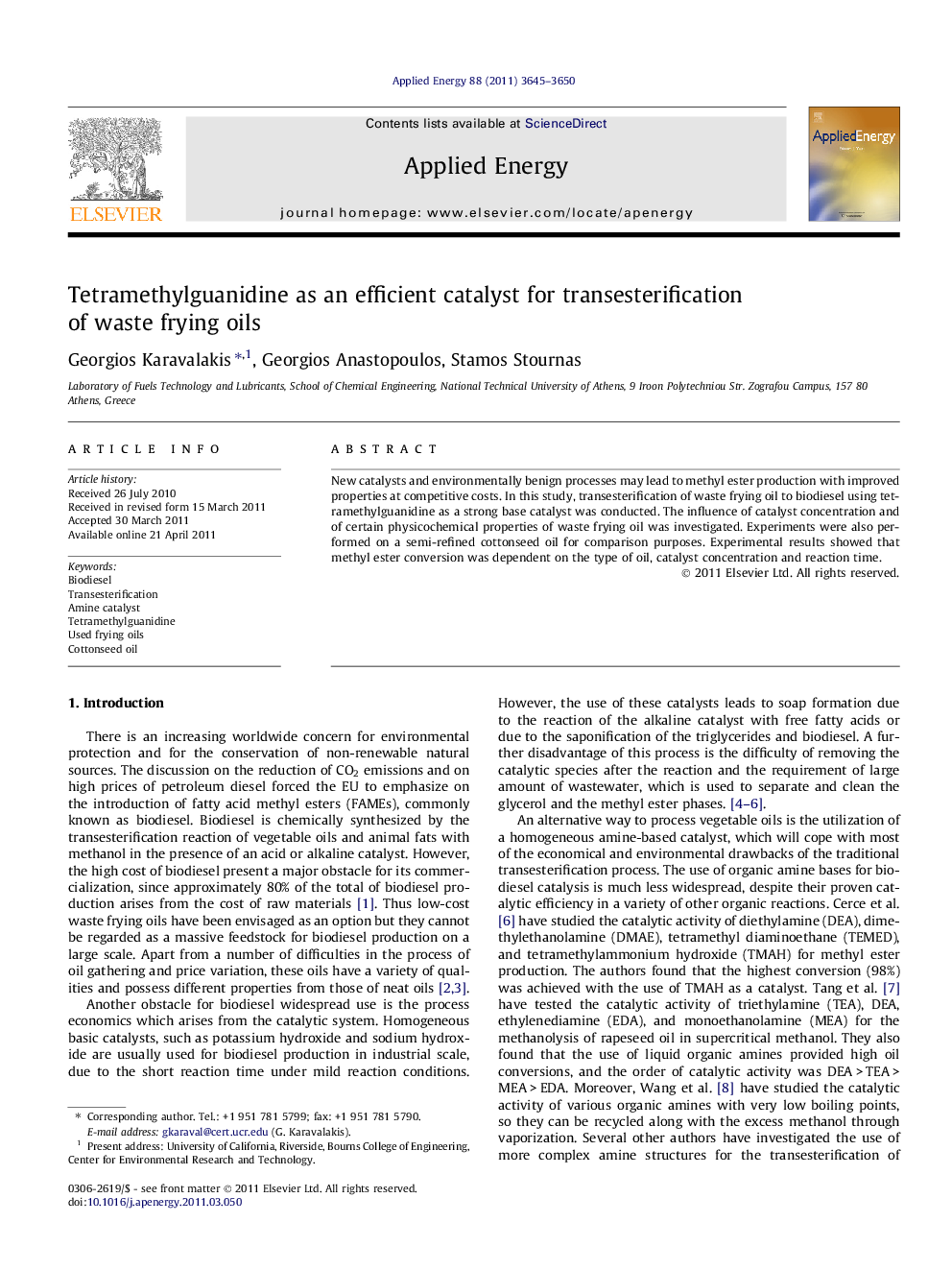| Article ID | Journal | Published Year | Pages | File Type |
|---|---|---|---|---|
| 244172 | Applied Energy | 2011 | 6 Pages |
New catalysts and environmentally benign processes may lead to methyl ester production with improved properties at competitive costs. In this study, transesterification of waste frying oil to biodiesel using tetramethylguanidine as a strong base catalyst was conducted. The influence of catalyst concentration and of certain physicochemical properties of waste frying oil was investigated. Experiments were also performed on a semi-refined cottonseed oil for comparison purposes. Experimental results showed that methyl ester conversion was dependent on the type of oil, catalyst concentration and reaction time.
► Tetramethylguanidine provides a clean and water-free process for biodiesel production. ► The conversion of cottonseed oil is more than 96.5% at 2 wt.% of TMG. ► Lower conversion was found for waste oil due to the presence of free fatty acids. ► No formation of soaps occurred due to the formation of amides and amine salts. ► Extensive distillation is required to remove and recycle the excess catalyst.
